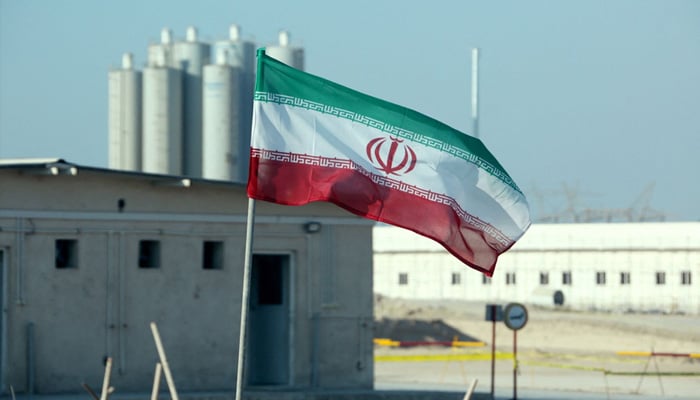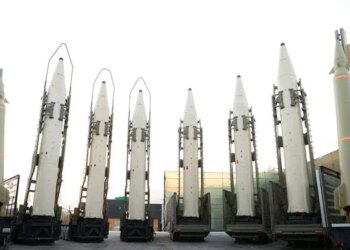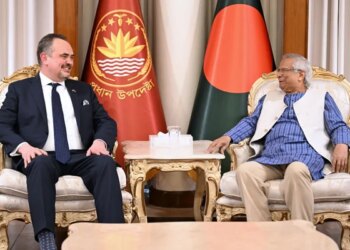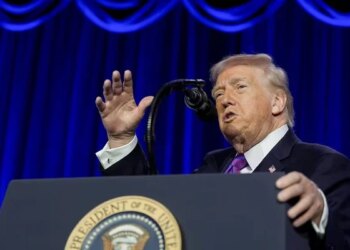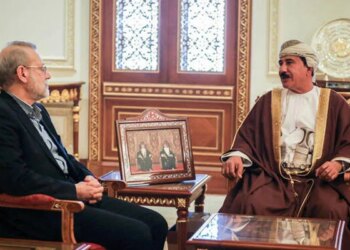Select Language:
Iran was on the verge of implementing comprehensive UN sanctions late Saturday for the first time in ten years—unless an unexpected breakthrough occurs—after nuclear negotiations with Western nations stalled.
On Friday, the UN nuclear agency reported that inspectors had been permitted to revisit Iranian sites, but Western governments deemed the progress insufficient to justify postponing sanctions following a week of high-level diplomacy at the UN General Assembly.
European nations initiated a one-month countdown for the immediate re-imposition of UN sanctions, accusing Iran of not fully disclosing its nuclear activities—including measures taken in response to bombings by Israel and the US.
Iran responded by recalling its envoys from Britain, France, and Germany for consultations, according to state TV, after these countries officially triggered the sanctions mechanism.
The sanctions are scheduled to take effect at midnight GMT on Sunday (8 p.m. Saturday in New York), establishing a worldwide ban on collaborating with entities accused of advancing Iran’s nuclear and missile programs.
Iranian President Masoud Pezeshkian criticized the potential deal, asserting that Iran has no reason to agree, believing that Israel and the US are leveraging pressure to topple the Islamic Republic. He reaffirmed Iran’s stance against developing nuclear weapons, stating, “If the goal was to resolve concerns about our nuclear program, we could do so easily.”
During the week, Pezeshkian met with French President Emmanuel Macron, who proposed that Iran relinquish its stockpile of highly enriched uranium in exchange for a one-month delay in sanctions reimplementation. Pezeshkian questioned this approach, asking, “Why would we trap ourselves and hang ourselves each month?”
He accused the US of pressuring European allies to avoid reaching a compromise. Steve Witkoff, a close associate of former President Trump and a negotiator, claimed the US does not intend to harm Iran and remains open to negotiations. However, Pezeshkian criticized Witkoff for seeming unserious, citing past agreements he claims Witkoff has abandoned—citing recent Israeli military actions that halted negotiations abruptly.
The reimposed sanctions aim to increase economic pressure on Iran, but enforcement remains uncertain. Russia’s deputy ambassador Dmitry Polyansky dismissed the sanctions, calling their reimposition “null and void,” and Russia alongside China attempted to delay the sanctions until April but failed to gather enough support at the UN Security Council.
The US already maintains unilateral sanctions after withdrawing from the 2015 nuclear deal—an agreement Iran and several European countries previously supported, which offered sanctions relief in return for strict nuclear program restrictions. The new measures are a direct “snapback” of those UN sanctions, which had been suspended under the 2015 deal.
The International Crisis Group noted that Iran appears relatively unmoved by the imminent sanctions, having already adapted to US and other restrictions. Still, reversing the snapback would require a consensus at the Security Council, making it difficult to undo. The report emphasizes that the sanctions could worsen Iran’s already turbulent economy, plagued by inflation, currency issues, and infrastructural challenges.
Israeli Prime Minister Benjamin Netanyahu delivered a defiant speech at the UN, calling for no delay in re-imposing sanctions and implicitly warning that Israel might again target Iran’s nuclear facilities, particularly after ramping up its military strikes in June that Iran claims resulted in over 1,000 deaths.
Pezeshkian warned Iran would not retaliate by abandoning the nuclear Non-Proliferation Treaty, accusing unnamed powers of seeking a superficial pretext to ignite regional conflict.

